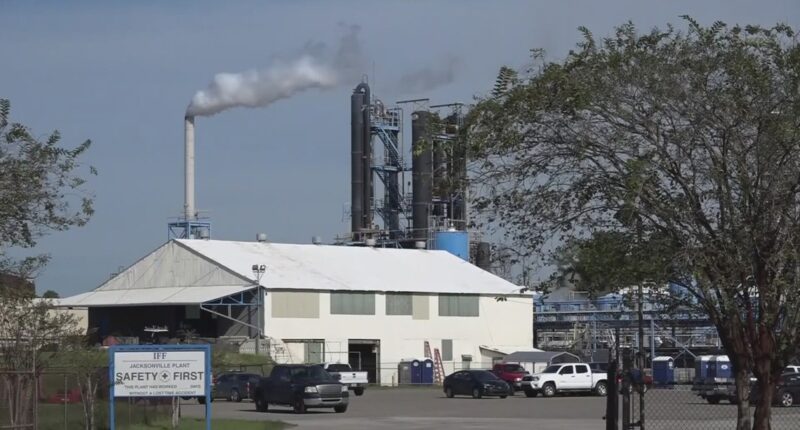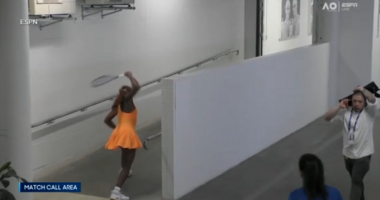Share this @internewscast.com

The central issue at a recent hearing was whether thousands of residents who have reported foul odors can be considered a single class in a legal action.
JACKSONVILLE, Fla. — On Monday, a Duval County judge listened to intense arguments as residents of Murray Hill made their case for a class-action lawsuit against International Flavors & Fragrances (IFF). They claim that for years, chemical odors have plagued their neighborhood, invading their homes.
The key question is whether those who have complained about the odors can be recognized as a unified class in the lawsuit.
This decision is crucial as it will dictate whether the legal proceedings will progress as one comprehensive lawsuit or be divided into individual or group claims.
During the afternoon session, IFF’s defense team questioned the validity of the evidence presented by the plaintiffs. They contended that the data used by the plaintiffs’ expert was based on “fabricated” emission figures, rather than the actual data from the company’s air permit.
The defense argued that their expert, Roberto Gasporino, indicated in a deposition that if the real emission figures from IFF were used, they would reveal odor concentrations below the level detectable by humans.
Defense also highlighted the presence of multiple industrial odor sources in the area, saying residents’ complaints can’t reliably be traced back to IFF. They pointed out that other neighborhoods downwind of the plant reported no odors at all.
Plaintiffs’ attorney countered with a sweeping overview of evidence collected since 2018: more than 2,000 odor complaints, nearly 200 confirmed by the city, and city documents acknowledging that TRS compounds emitted by industrial facilities can travel miles if not properly controlled.
The attorneys said the plaintiffs aren’t required to prove liability yet, only that a class exists and can be identified.
“This class essentially defined itself over four years,” Laura Sheets said, adding that residents consistently describe the same “pine-like,” chemical odor and consistently attribute it to IFF.
One of the sharpest conflicts of the hearing centered on dueling resident declarations.
Plaintiffs accused IFF of sending private investigators through Murray Hill to gather statements from residents claiming they don’t smell anything.
Sheets said some residents later rescinded their statements, claiming they didn’t understand they were signing sworn legal documents or that the signatures were not theirs.
She also noted that some allegedly said the canvassers said they were working on behalf of Revlon, a cosmetics company, and not IFF.
The defense denied wrongdoing and said they only produced the declarations they were asked for.
By the end of the hearing, Judge Robert Dees denied all three motions before him — including cross-Daubert challenges and a motion to strike late-filed declarations — and did not rule on whether the lawsuit will be certified as a class action.
Instead, he ordered both sides to submit proposed written orders stating exactly how they want him to rule.

















